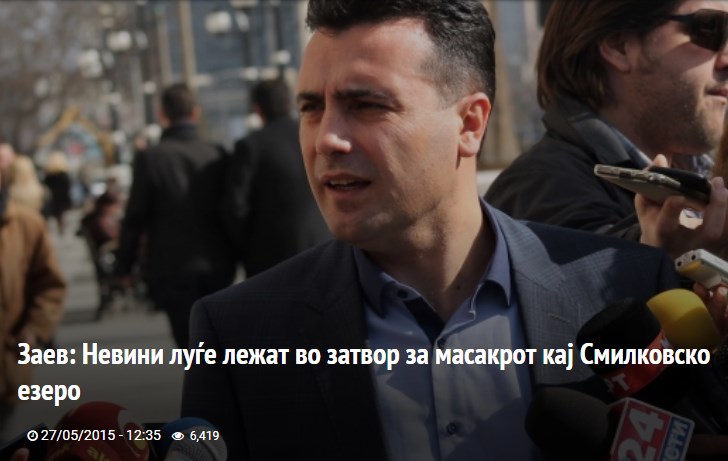Former judge Vladimir Tufegcic, who was head of the investigation in the 2012 Good Friday massacre, said that the alleged wiretaps on the case only caused additional suffering to the families of the four killed boys.
The massacre was carried on the eve of Good Friday in 2012, by three Albanian islamists, who killed four Macedonian teenagers and one man. The machine gun murders were apparently meant to spark a religious and civil war in Macedonia. Only one of the killers was detained, while two remain protected by the Kosovo authorities where they fled after the massacre carried out north of Skopje.
Former SDSM leader Zoran Zaev used the case to drum up Albanian support for his party during the Colored Revolution, alleging that he has additional evidence, from the larg cache of wiretaps that his party received from unknown sources. Zaev kept hinting that the wiretaps will shed new light on the case, and will reveal that the massacre was somehow staged by officials of the then ruling VMRO-DPMNE party.
The bizarre strategy helped Zaev win Albanian votes that contributed to his power-grab, and he pushed the judiciary to repeat the trial, but then acknowledged that he has no new evidence to offer.
The conversations were announced in a bombastic manner, that allegedly the wiretaps will show that state officials are somehow involved in the whole case. There were conversations from officials, but they had absolutely no relation to the event. They showed the officials at the time expressing concern and looking for answers to what happened, Tufegcic said during an interview.
The former judge said that the way Zaev handled the case only caused additional suffering to the families of the five victims. The parents of the killed boys begged Zaev to reveal the tapes he has, but for years he refused to do so, before eventually saying that he has nothing.





Comments are closed for this post.